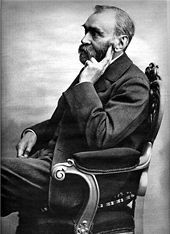“Punting the Pundits” is an Open Thread. It is a selection of editorials and opinions from around the news medium and the internet blogs. The intent is to provide a forum for your reactions and opinions, not just to the opinions presented, but to what ever you find important.
Thanks to ek hornbeck, click on the link and you can access all the past “Punting the Pundits”.
John Nichols: The Koch Brothers, ALEC and the Savage Assault on Democracy
Billionaire brothers Charles and David Koch finally got their way in 2011. After their decades of funding the American Legislative Exchange Council, the collaboration between multinational corporations and conservative state legislators, the project began finally to yield the intended result.
For the first time in decades, the United States saw a steady dismantling of the laws, regulations, programs and practices put in place to make real the promise of American democracy.
That is why, on Saturday, civil rights groups and their allies will rally outside the New York headquarters of the Koch brothers to begin a march for the renewal of voting rights in America.
For the Koch brothers and their kind, less democracy is better. They fund campaigns with millions of dollars in checks that have helped elect the likes of Wisconsin Governor Scott Walker and Ohio Governor John Kasich. And ALEC has made it clear, through its ambitious “Public Safety and Elections Task Force,” that while it wants to dismantle any barriers to corporate cash and billionaire bucks’ influencing elections, it wants very much to erect barriers to the primary tool that Americans who are not CEOs have to influence the politics and the government of the nation: voting.
Paul Krugman: In the Euro Zone, Looming Catastrophe
The basic story of the euro so far is that the introduction of the currency, by creating a false sense of safety, led to large capital flows to and correspondingly large current account deficits in the southern European nations: Greece, Italy, Portugal and Spain (Ireland’s is a somewhat different, though related, story, which I won’t take on here.) See the summary picture on this page.
Now these imbalances need to be unwound. As anyone who has studied international macroeconomics can tell you, this requires two things. First, it requires a redistribution of spending, with the creditors spending more while the debtors spend less. Second, it requires a real depreciation on the part of the debtors, and a real appreciation on the part of the creditors – that is, wages and prices in the G.I.P.S. must fall relative to those in Germany.
William Rivers Pitt:
The Final Indignity, the Last Insult, the Real America
Let’s start here.
The Air Force dumped the incinerated partial remains of at least 274 American troops in a Virginia landfill, far more than the military had acknowledged, before halting the secretive practice three years ago, records show. The landfill dumping was concealed from families who had authorized the military to dispose of the remains in a dignified and respectful manner, Air Force officials said. There are no plans, they said, to alert those families now.
Think about that for a long moment.
This is a nation with a big, fat, fancy, shiny, appealing opinion of itself. The mythology of American Exceptionalism perseveres, even unto this dark and dilapidated day. We are not as others are. We are different. We are better. We honor and fete our soldiers, our veterans, our war heroes. We make movies about their bravery and their deeds, we throw parades for them annually, and when it suits us politically, we attack our political rivals for “not supporting” those who carry our banner in the field of combat.
New York Times Editorial: Europe’s Latest Try
We are not optimistic about Friday’s new fiscal pact. More discipline and coordination make sense, but first economies have to start growing.
We’re losing count of how many European Union summit meetings have ended with “historic” agreements to contain the euro-zone debt crisis only to see them fall apart as markets judged they were inadequate or irrelevant to the problem of making good on old debts and generating enough growth to pay off future obligations.
We are not optimistic that Friday morning’s agreement on a “new fiscal compact” for the euro-zone will now break that cycle.
The agreement – all 17 members that use the euro have agreed to sign it – is built around Germany’s demand for legal commitments to maintain fiscal and financial discipline. In the long-term, more discipline and coordination and more financial transparency are good things. But a pact that binds all members to more austerity in a time of recession is exactly what Europe does not need right now. The agreement will also increase the money available for future bailouts. But the amounts are still far too small to persuade investors that Europe is prepared to back up much larger economies like Italy and Spain. And it still leaves the euro zone without a lender of last resort, like America’s Federal Reserve, to defend vulnerable countries and banks from market panic.
Gail Collins: The Ghosts of Boyfriends Past
After a nominee for an ambassador’s post was grilled over a boyfriend she had lived with almost 20 years ago, it might be time to adopt a statute of limitations on this sort of thing.
New unnerving development in Congress: Some senators are claiming that a woman nominated to be ambassador to El Salvador can’t have the job because they don’t like a boyfriend she lived with almost 20 years ago.
These days, it’s hard enough to get kids to understand the possible future employment consequences of appearing naked on Facebook. If they hear about this one, they’ll give up entirely.
The debate involves Mari Carmen Aponte, who has been functioning as ambassador under a recess appointment by President Obama that runs out soon. The Democrats plan to make a last-ditch attempt to approve the nomination, but the Senate Republicans seem determined to block it.
David Uhlmann: For 29 Dead Miners, No Justice
Despite its questionable practices, Massey Energy will not be criminally prosecuted for a mine explosion that killed 29 workers in West Virginia.
EARLY on April 5, 2010, in the heart of West Virginia coal country, a huge explosion killed 29 workers at Massey Energy’s Upper Big Branch Mine. Later that day, President Obama directed Labor Secretary Hilda L. Solis to conduct “the most thorough and comprehensive investigation possible” and to work with the Justice Department to investigate any criminal violations.
On Tuesday, the Labor Department issued a 972-page report on the calamity – the nation’s worst mining disaster in 40 years. It concluded that Massey’s “unlawful policies and practices” were the “root cause of this tragedy.” It identified over 300 violations of the Mine Safety and Health Act, including nine flagrant violations that contributed to the explosion.
On this day in 1787, Pennsylvania becomes the second state to ratify the Constitution, by a vote of 46 to 23. Pennsylvania was the first large state to ratify, as well as the first state to endure a serious Anti-Federalist challenge to ratification.

 On this day in 1946,
On this day in 1946,  In 1953,
In 1953,  Welcome to the Stars Hollow Health and Fitness weekly diary. It will publish on Saturday afternoon and be open for discussion about health related issues including diet, exercise, health and health care issues, as well as, tips on what you can do when there is a medical emergency. Also an opportunity to share and exchange your favorite healthy recipes.
Welcome to the Stars Hollow Health and Fitness weekly diary. It will publish on Saturday afternoon and be open for discussion about health related issues including diet, exercise, health and health care issues, as well as, tips on what you can do when there is a medical emergency. Also an opportunity to share and exchange your favorite healthy recipes. 
 On this day in 1901,
On this day in 1901, 
 The Joint Committee on the Conduct of the War was a
The Joint Committee on the Conduct of the War was a
Recent Comments